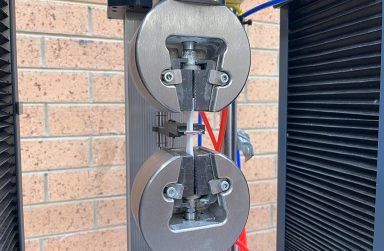What happened to Shapeways? Lessons for the 3D Printing Service Industry
July 22, 2024
The recent bankruptcy filing of Shapeways, once a prominent name in the 3D printing sector, serves as a pivotal moment for the industry. While the decline of Shapeways may raise eyebrows, it offers valuable insights into the broader 3D printing landscape and why some businesses flourish while others falter.
Understanding Shapeways’ Journey
Shapeways, established in 2007, revolutionised the 3D Printing Service Industry by making it accessible to a diverse audience. The company provided a platform where individuals could upload designs to be printed and shipped worldwide. Despite initial success, Shapeways encountered numerous hurdles that led to its eventual bankruptcy.
In 2021, Shapeways went public through a Special Purpose Acquisition Company (SPAC) merger, gaining significant capital but also facing heightened investor scrutiny and pressure for rapid growth. Stable revenues in 2022 were insufficient to meet Wall Street’s high expectations, causing the stock to fall dramatically from $83.60 per share in January 2021 to $1.94 by February 2024.
Balancing operational expenses with revenue proved challenging for Shapeways. The company experienced substantial net losses and failed to meet growth targets. Efforts to cut costs, including workforce reductions, were not enough to resolve the financial instability.
A potential $5 million rescue bid was rejected, which could have offered a critical lifeline. This decision underscored Shapeways’ struggles to secure additional funding or strategic partnerships to overcome its financial issues.
Did Shapeways’ Strategy Contribute to Their Downfall?
Shapeways employed a unique crowdsourcing strategy, mainly outsourcing to smaller service providers while owning a limited number of printers themselves. While this approach granted them significant capacity, it also limited their ability to maintain consistent quality control and efficient customer service. The reliance on external printers potentially introduced variability in print quality and inconsistent delivery times. Additionally, managing customer service issues may have became more complex and less efficient, contributing to operational challenges.
Have you been affected by the closure of Shapeways?
At Formero, we understand the challenges that arise from the sudden closure of a trusted service provider. If you have been affected by the bankruptcy of Shapeways, we are here to support you. Our extensive range of 3D printing services ensures high-quality results and reliable delivery.
Our team is ready to provide personalised solutions to help you continue your projects without interruption. Please contact us to discuss how we can best support you during this transition.
Broader Industry Implications
Shapeways’ bankruptcy highlights concerns about the health of the 3D Printing Service Industry. However, it’s important to differentiate between the struggles of individual companies and the sector as a whole.
The SPAC merger set unrealistic growth expectations for Shapeways, leading to risky strategies that didn’t align with market realities. This serves as a cautionary tale for other companies considering similar financial routes.
Successful 3D printing companies often pursue sustainable growth models, focusing on steady, incremental progress rather than rapid expansion. This approach allows for the development of strong business foundations without overreaching financially.
Keys to Success in 3D Printing
The achievements of successful 3D printing companies can be attributed to several critical factors. Companies that offer a wide range of 3D printing technologies and materials can mitigate risks and serve a broader customer base, enhancing their market resilience. Maintaining high production standards and dependable service fosters strong customer trust and repeat business. A focus on quality over quantity has proven to be a robust business strategy. Rather than chasing rapid expansion, some companies emphasise strategic growth and continuous innovation. Staying ahead of industry trends and adopting new technologies helps maintain a competitive edge.
How Formero’s Business Model Differs
At Formero, we conduct all of our 3D printing in-house, allowing us to maintain stringent quality control and deliver superior products. Our ISO 9001 certification underscores our commitment to quality management and customer satisfaction. By keeping 3D Printing internal, we ensure consistent quality, timely delivery, and efficient handling of customer service issues. We proudly serve clients across Australia, providing local expertise and fast service wherever you are. This approach, combined with our focus on steady growth and innovation, keeps us at the forefront of the industry and enables us to meet the evolving needs of our clients.
Conclusion
The bankruptcy of Shapeways is a notable event in the 3D Printing Service industry but does not indicate a decline of the sector. Instead, it highlights the importance of sustainable growth, realistic investor expectations, and strategic partnerships. Companies that prioritise steady, incremental progress and innovation are well-positioned to thrive in the evolving 3D Printing Service landscape.
Ready to speak with us?
References
Zambrano, J.R. (2024) Shapeways shuts down after 17 years of 3D printed glory, BoLS. Available at: https://www.belloflostsouls.net/2024/07/shapeways-shuts-down-after-17-years-of-3d-printed-glory.html.
Chavan, A. (2024) Shapeways files for bankruptcy: All top executives resign, Manufactur3D. Available at: https://manufactur3dmag.com/shapeways-files-for-bankruptcy/ (Accessed: 17 July 2024).
Shaikhnag, A. (2024) Shapeways bankrupt? $5m rescue bid rejected, 3D Printing Industry. Available at: https://3dprintingindustry.com/news/shapeways-bankrupt-5m-rescue-bid-rejected-231387/ (Accessed: 17 July 2024).
Author
Craig Alexander
Craig is a seasoned marketing professional with over 13 years of diverse experience in industries ranging from Asphalt Testing Technology to Environmental Sciences. His extensive background in B2B marketing, coupled with a deep understanding of complex technical fields like Power Tools, Solar & Battery Systems, and Emergency Lighting, uniquely positions him to bridge the gap between advanced manufacturing technologies and market needs. Craig leverages his comprehensive marketing skills to translate intricate manufacturing processes and innovations into clear, compelling narratives, helping businesses of all sizes succeed in both local and international markets.



